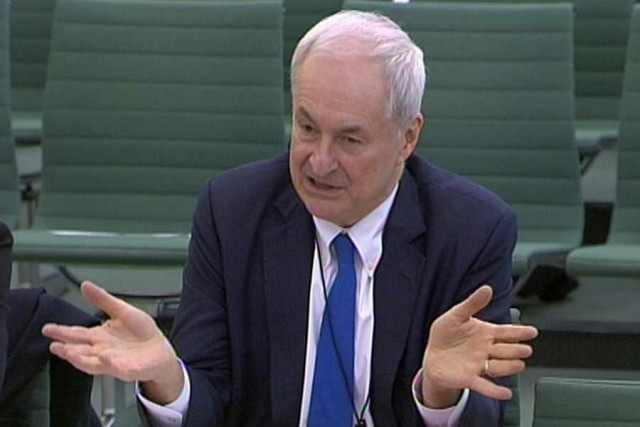All suspects should remain anonymous unless and until they are officially charged with a crime, the Commons Home Affairs Select Committee has recommended.
The group of MPs says the media should be banned from naming suspects until charged, thanks to the huge potential in the age of social media for damage to be done to people who may never face prosecution.
The MPs cited the cases of Paul Gambaccini and Cliff Richard, both of whom suffered “reputational damage” thanks to police enquiries yet were never formally charged, let alone convicted, of any crime. The MPs have said that the same right of anonymity currently afforded to victims of sexual abuse, including rape, ought to be extended to suspects, the Guardian has reported.
Names should only be released “for policing reasons” and then in a formal way they said: “There needs to be zero tolerance on the police leaking information on a suspect in an unattributed way. It is in the interests of the police, post-Leveson, to demonstrate the level of public distrust that has built up over the informal relationship between the police and the media.”
And they said that the issue had become a matter of public debate thanks to the social media’s potential to “amplify the reputational damage done by naming a suspect,” at a time when a number of celebrities are being questioned as part of operation Yew Tree, which is seeking to investigate historic sexual offenses in the wake of revelations about Jimmy Savile.
Keith Vaz, chairman of the committee, said that the “twelve months of trauma” suffered by radio disk jockey Paul Gambaccini, in which he was repeatedly bailed but never charged, persuaded him that the current system was “inexcusable”.
“Police use of the ‘flypaper’ practice of arresting someone, leaking the details and then endlessly re-bailing them in the vague hope that other people come forward is unacceptable and must come to an immediate end,” said Vaz.
“It is inexcusable that information about suspects is released to the media in an informal, unattributed way. We have seen how destructive this can be to a person’s livelihood, causing irreparable reputational damage and enormous financial burden. The police must advocate zero tolerance on leaking names of suspects to the press before charge.”
Police forces are expected to react strongly to the allegation that they routinely leak suspects names to the media. However, Sir Bernard Hogan-Howe, the Metropolitan police commissioner, told the committee’s enquiry that he was in support of moves towards anonymity.
However, the The Association of Chief Police Officers said that the naming of some suspects was justified. “On rare occasions a senior investigating officer may choose to name an arrested person where there is a good policing purpose for doing so, for example, in order to encourage other people who may have been victims to come forward,” said chief constable Chris Eyre.
“The media are often capable of identifying and naming an arrested person without assistance from the police. Where information is released by officers or staff without the appropriate authority this will be taken seriously and dealt with.”
The committee heard from Gambaccini who was bailed repeatedly by the police during operation Yew Tree over the course of a year before the Crown Prosecution Service decided there was insufficient evidence to prosecute.
Upon being cleared, Mr Gambaccini’s solicitor, Kate Goold, said: “We are delighted with the outcome but deeply concerned at the length of time it took to resolve this investigation. Paul made his innocence clear at the outset and questions remain as to why this investigation took so long.”
The investigation cost Mr Gambaccini his Radio 2 show, as the BBC suspended him soon after his arrest, and £200,000 in legal fees and lost earnings. Upon being cleared the 65 year old issued a statement issued through his lawyers, saying: “There may be members of the press who will ask me to give interviews or make provocative statements. I will politely decline. To discuss horror in this way is to trivialise it.
“I will never trivialise the 12 months of trauma to which I have been unjustly subjected.”
Thanks to his evidence, the Committee recommended in their report that a 28 day time limit be placed on bail, with extensions requiring a sign off by senior officers and a court review every three months.
The home secretary, Theresa May, re-stated her intention to reform police bail laws earlier this week. However, senior police officers are opposed to the idea, arguing that each case follows its own path, and that limits would be both unhelpful and expensive.

COMMENTS
Please let us know if you're having issues with commenting.